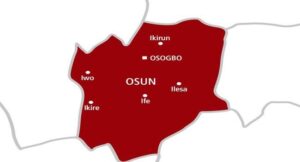
Actualising local government autonomy our priority — Speaker
By Matthew Denis, Abuja
The Speaker of the House of Representatives Rt. Hon. Abbas Tajudeen, has said that the 10th Assembly has taken steps that are targeted at actualising local governments autonomy for the people at grassroots.
He made the disclosure on Thursday at the day-two of the ongoing ‘Open Week’ celebration to mark the first anniversary of the 10th House, noted that it is in furtherance of the objectives that the House constituted two special Standing Committees to drive the process of actualising constitutional autonomy for Local Governments, as well as granting recognition to traditional institutions in Nigeria.
The Speaker said, “The 10th House, under my leadership, will do its best to give recognition to the traditional rulers during our constitution amendment exercise. Many amendments were made in the past to grant constitutional recognition to traditional rulers, but they never saw the light of day.
“Because most of us in the House honestly believe that traditional institutions are the backbone of our society, we believe that the welfare of our people will be enhanced with a legal role for the traditional institutions.
“We also believe the security of our country will be more enhanced if the traditional institutions are given better roles. That’s the reason from the onset, we decided to create Committees, two different ones, actually.
“One of them is the Committee on Traditional Institutions to drive the process of giving legal recognition to the traditional institutions in this coming constitutional amendment. The second one is the Committee on States and Local Governments,
“If we must make headway with the ongoing constitution amendment, state governments, State Houses of Assembly, Local Government Councils and their councilors must be considered. That’s the reason we decided that another committee dealing with issues of States and Local governments should come on board.
“These two Committees, we believe, will drive the process of reaching out to critical stakeholders in the states to ensure that the goal of local government autonomy is realised,” he said.
Also contributing to the conversation as panellists were traditional rulers led by the Etsu Nupe Alhaji Yahaya Abubakar, the Chairman, Niger State Council of Traditional Rulers, who recalled the historical background of traditional institutions in Nigeria.
He added that during the colonial era, the traditional institution was already established, which was why the colonialists went through the institution to administer their rules.
“So, we are urging this Assembly to use the ongoing constitution review exercise to re-establish the roles of traditional institutions in the country so that we can assist governments at all levels to monitor and maintain security and peace in our various domains,” Etsu stated.
Also making case for traditional institutions having constitutional roles is the Nigerian Bar Association represented by the President, Yakubu Maikyau (SAN), who urged the leadership of the 10th National Assembly to revisit all legal and legislative encumbrances hindering the realisation of the full potential of traditional institutions in the country.
He commended the Speaker for championing the cause of returning traditional institutions to their glory days by carving roles for them in the constitution, free from the overbearing influence of political actors.
He noted that for such roles to be effective and sustainable, the constitution must also take care of the issue of job security for the traditional rulers, whom he said are currently at the mercy of politicians.
Other panellists representing traditional substitutions from various parts of the country, as well as Members of the House also made a case for the constitutional recognition of traditional institutions for the purposes of complementing government’s efforts toward maintaining peace and security.
They specifically harped on the need to create line items in the budget with a view to funding activities of traditional rulers in their various domains towards fighting insecurity and promoting peaceful coexistence among their subjects among others.




